
airswap-protocols
AirSwap Contracts and Tools
Stars: 230
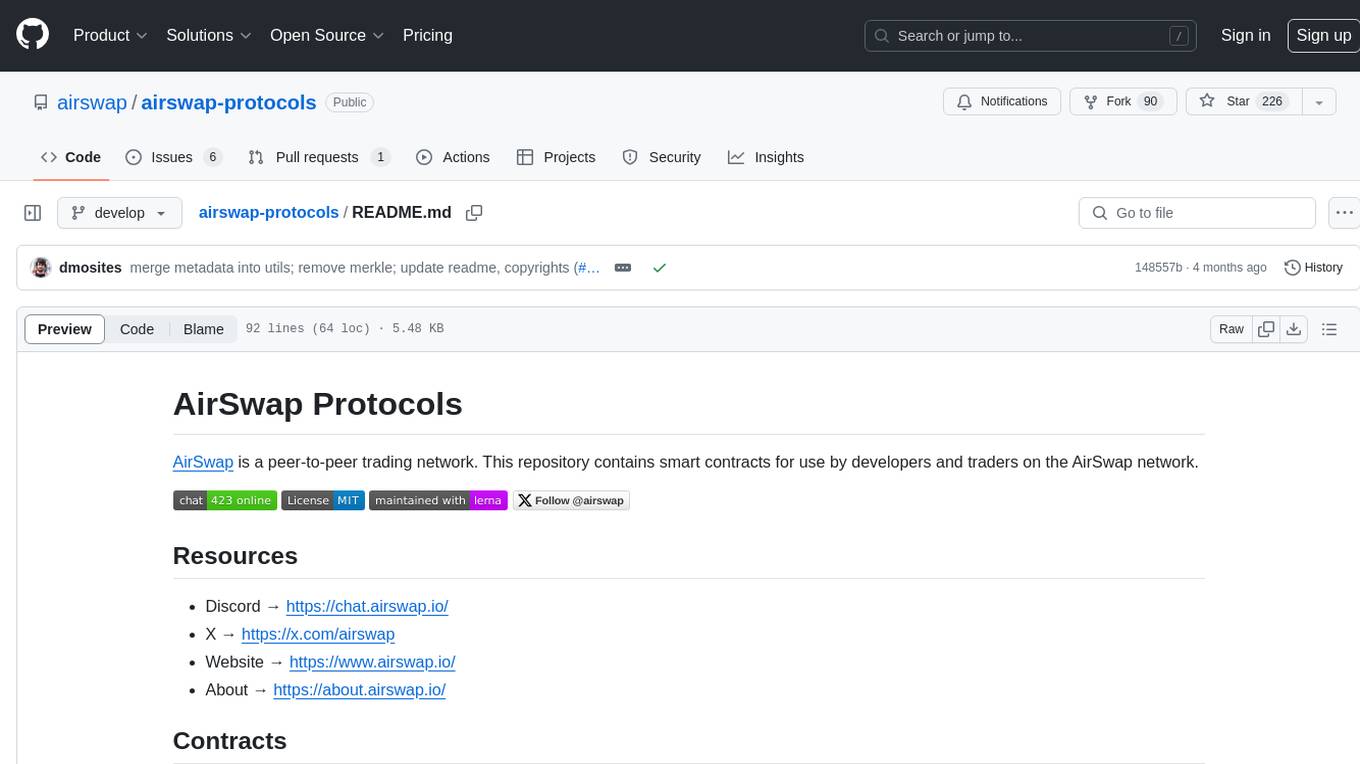
AirSwap Protocols is a repository containing smart contracts for developers and traders on the AirSwap peer-to-peer trading network. It includes various packages for functionalities like server registry, atomic token swap, staking, rewards pool, batch token and order calls, libraries, and utils. The repository follows a branching and release process for contracts and tools, with steps for regular development process and individual package features or patches. Users can deploy and verify contracts using specific commands with network flags.
README:
AirSwap is a peer-to-peer trading network. This repository contains smart contracts for use by developers and traders on the AirSwap network.
- Discord → https://chat.airswap.io/
- X → https://x.com/airswap
- Website → https://www.airswap.io/
- About → https://about.airswap.io/
| Package | Version | Description |
|---|---|---|
@airswap/registry |
 |
Server Registry |
@airswap/swap |
 |
Atomic Token Swap |
@airswap/swap-erc20 |
 |
Atomic Token Swap (ERC20) |
@airswap/wrapper |
 |
Wrapper for Native Tokens |
@airswap/staking |
 |
Staking for Members |
@airswap/pool |
 |
Rewards Pool for Members |
@airswap/batch-call |
 |
Batch Token and Order Calls |
| Package | Version | Description |
|---|---|---|
@airswap/libraries |
 |
Libraries for Developers |
@airswap/utils |
 |
Utils for Developers |
| Command | Description |
|---|---|
yarn compile |
Compile all contracts to build folders. |
yarn clean |
Clean all contract build folders. |
yarn test |
Run all contract tests in test folders. |
yarn lint:fix |
Run eslint for all JavaScript code. |
yarn pretty:fix |
Run prettier for all JavaScript code. |
Flow for contracts and associated tools: Branch from Develop; Merge Feature → Develop → Beta → Main
Flow for tool updates (not contracts): Branch from Main; Merge Feature → Main → Develop
Regular development process for a complete release
-
New work and features are cut from and merged to "develop"
- Cut feature branches from develop
- Merge feature branches into develop (Squash and Merge)
-
Merge "develop" into "beta" to publish beta packages. (Semver: x.x.x-beta.x)
- Merge develop into beta (Merge Commit): this will publish NPM with "beta" tag.
- Tag beta release from beta branch. (x.x.x-beta.x)
- Share tagged release with auditors if auditing.
-
Merge "develop" into "main" to publish latest packages. (Semver: x.x.x)
- Merge develop into main (Merge Commit): this will publish NPM with "latest" tag.
- Merge main into beta: this will update the beta with latest.
- Tag release from main branch. (x.x.x)
Each deploys.js must be limited to contracts deployed from that package version.
Individual package features or patches
- Cut a feature or fix branch from main.
- Merge fix into main (Squash and Merge): this will publish to NPM with "latest" tag.
- Merge main into develop.
Each package has commands yarn deploy and yarn verify. Each command takes a --network flag. For example:
yarn deploy --network sepolia
yarn verify --network sepolia
The source of these scripts can be found in the scripts folder of each package. The account used to deploy and verify is derived from the PRIVATE_KEY environment variable in .env in the repository root.
For Tasks:
Click tags to check more tools for each tasksFor Jobs:
Alternative AI tools for airswap-protocols
Similar Open Source Tools

airswap-protocols
AirSwap Protocols is a repository containing smart contracts for developers and traders on the AirSwap peer-to-peer trading network. It includes various packages for functionalities like server registry, atomic token swap, staking, rewards pool, batch token and order calls, libraries, and utils. The repository follows a branching and release process for contracts and tools, with steps for regular development process and individual package features or patches. Users can deploy and verify contracts using specific commands with network flags.
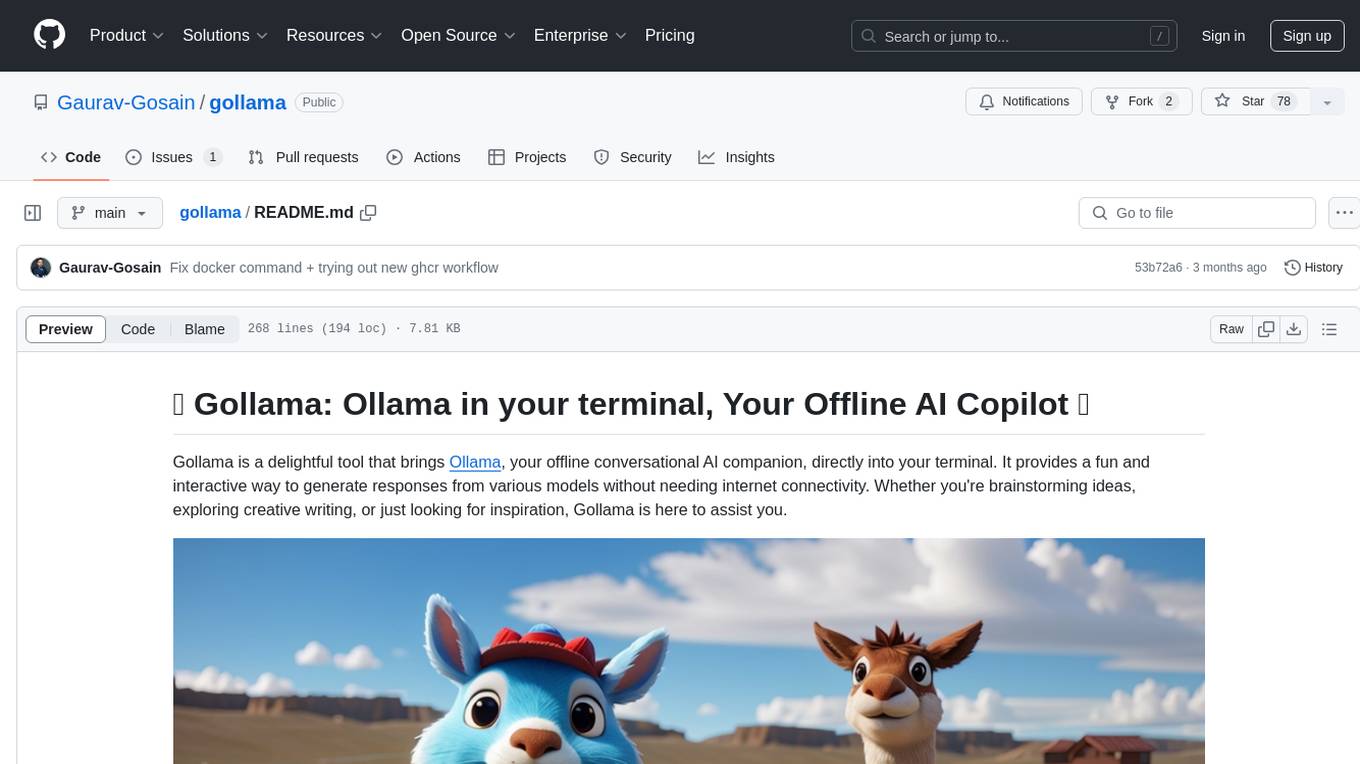
gollama
Gollama is a delightful tool that brings Ollama, your offline conversational AI companion, directly into your terminal. It provides a fun and interactive way to generate responses from various models without needing internet connectivity. Whether you're brainstorming ideas, exploring creative writing, or just looking for inspiration, Gollama is here to assist you. The tool offers an interactive interface, customizable prompts, multiple models selection, and visual feedback to enhance user experience. It can be installed via different methods like downloading the latest release, using Go, running with Docker, or building from source. Users can interact with Gollama through various options like specifying a custom base URL, prompt, model, and enabling raw output mode. The tool supports different modes like interactive, piped, CLI with image, and TUI with image. Gollama relies on third-party packages like bubbletea, glamour, huh, and lipgloss. The roadmap includes implementing piped mode, support for extracting codeblocks, copying responses/codeblocks to clipboard, GitHub Actions for automated releases, and downloading models directly from Ollama using the rest API. Contributions are welcome, and the project is licensed under the MIT License.
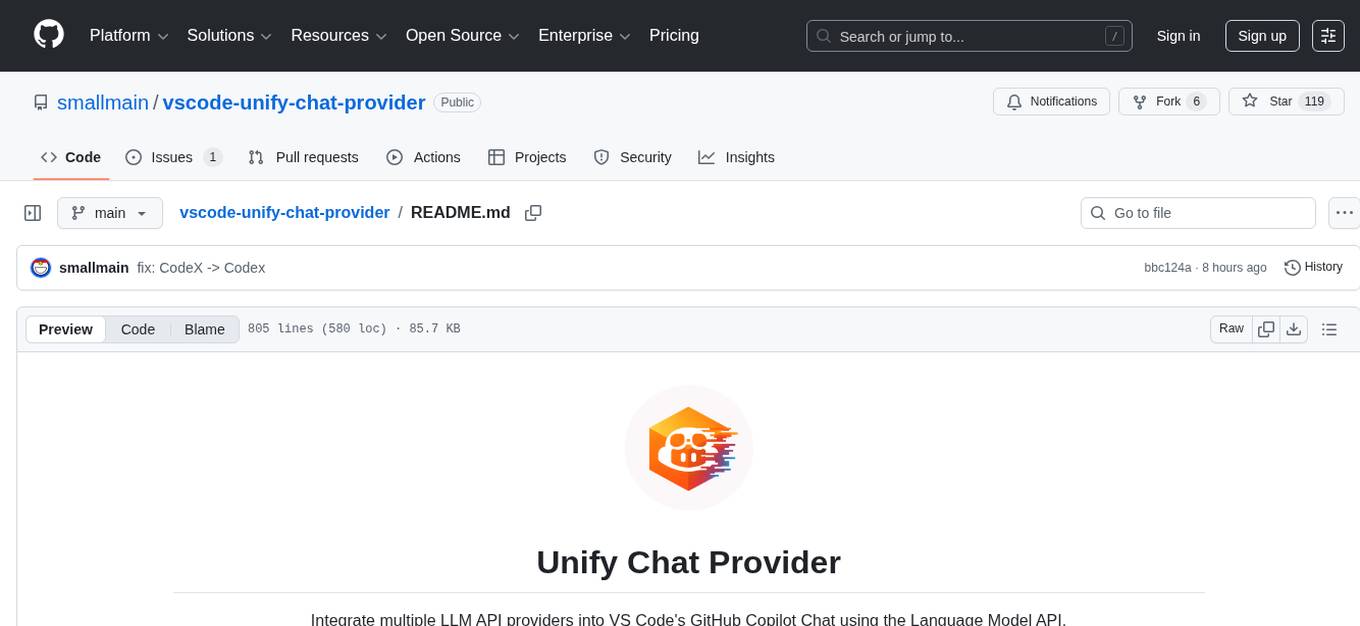
vscode-unify-chat-provider
The 'vscode-unify-chat-provider' repository is a tool that integrates multiple LLM API providers into VS Code's GitHub Copilot Chat using the Language Model API. It offers free tier access to mainstream models, perfect compatibility with major LLM API formats, deep adaptation to API features, best performance with built-in parameters, out-of-the-box configuration, import/export support, great UX, and one-click use of various models. The tool simplifies model setup, migration, and configuration for users, providing a seamless experience within VS Code for utilizing different language models.
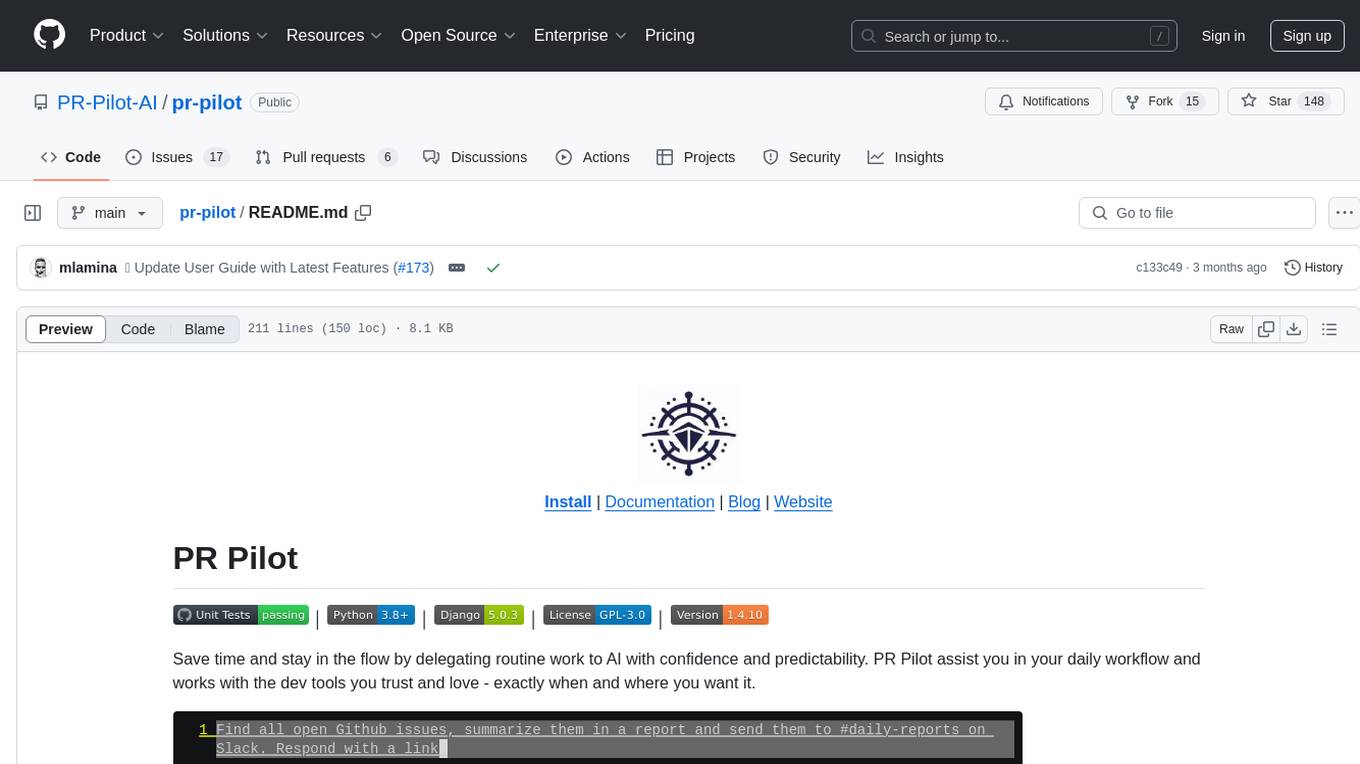
pr-pilot
PR Pilot is an AI-powered tool designed to assist users in their daily workflow by delegating routine work to AI with confidence and predictability. It integrates seamlessly with popular development tools and allows users to interact with it through a Command-Line Interface, Python SDK, REST API, and Smart Workflows. Users can automate tasks such as generating PR titles and descriptions, summarizing and posting issues, and formatting README files. The tool aims to save time and enhance productivity by providing AI-powered solutions for common development tasks.
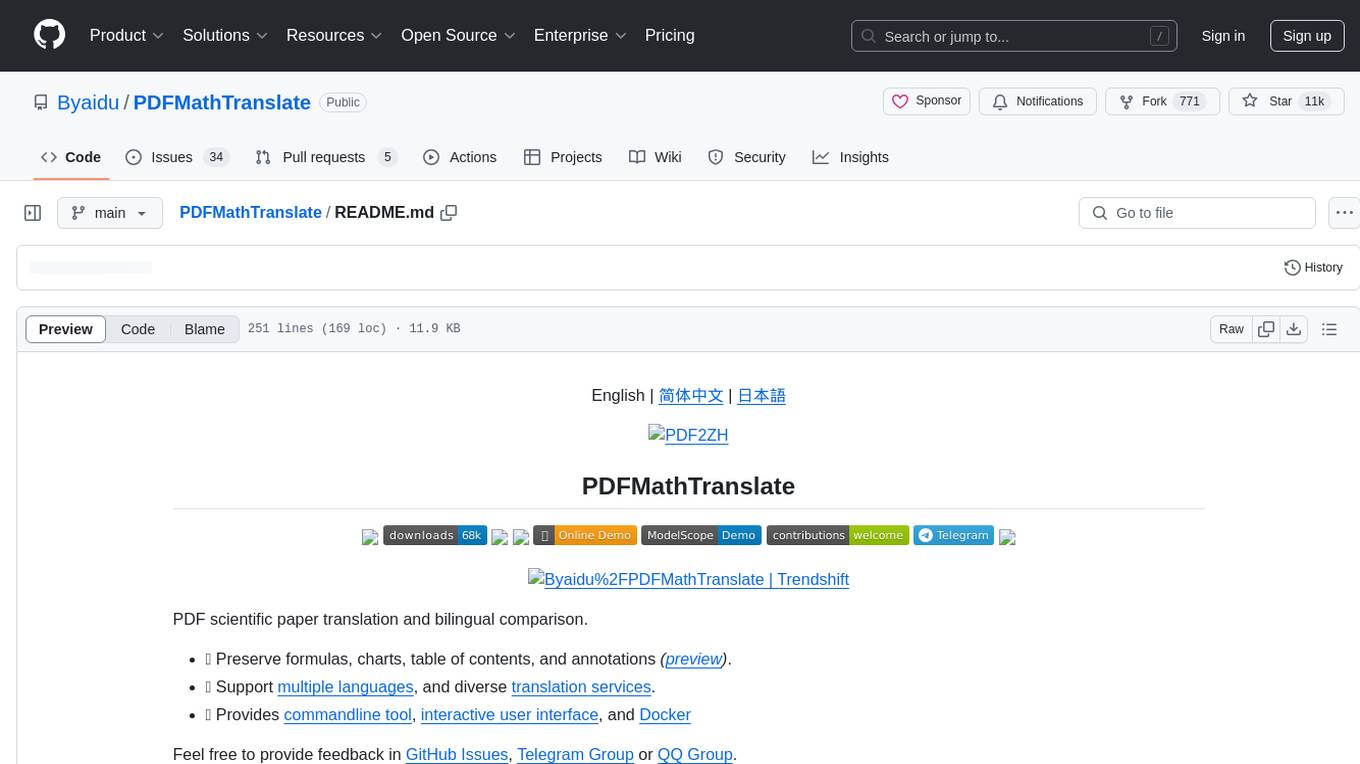
PDFMathTranslate
PDFMathTranslate is a tool designed for translating scientific papers and conducting bilingual comparisons. It preserves formulas, charts, table of contents, and annotations. The tool supports multiple languages and diverse translation services. It provides a command-line tool, interactive user interface, and Docker deployment. Users can try the application through online demos. The tool offers various installation methods including command-line, portable, graphic user interface, and Docker. Advanced options allow users to customize translation settings. Additionally, the tool supports secondary development through APIs for Python and HTTP. Future plans include parsing layout with DocLayNet based models, fixing page rotation and format issues, supporting non-PDF/A files, and integrating plugins for Zotero and Obsidian.
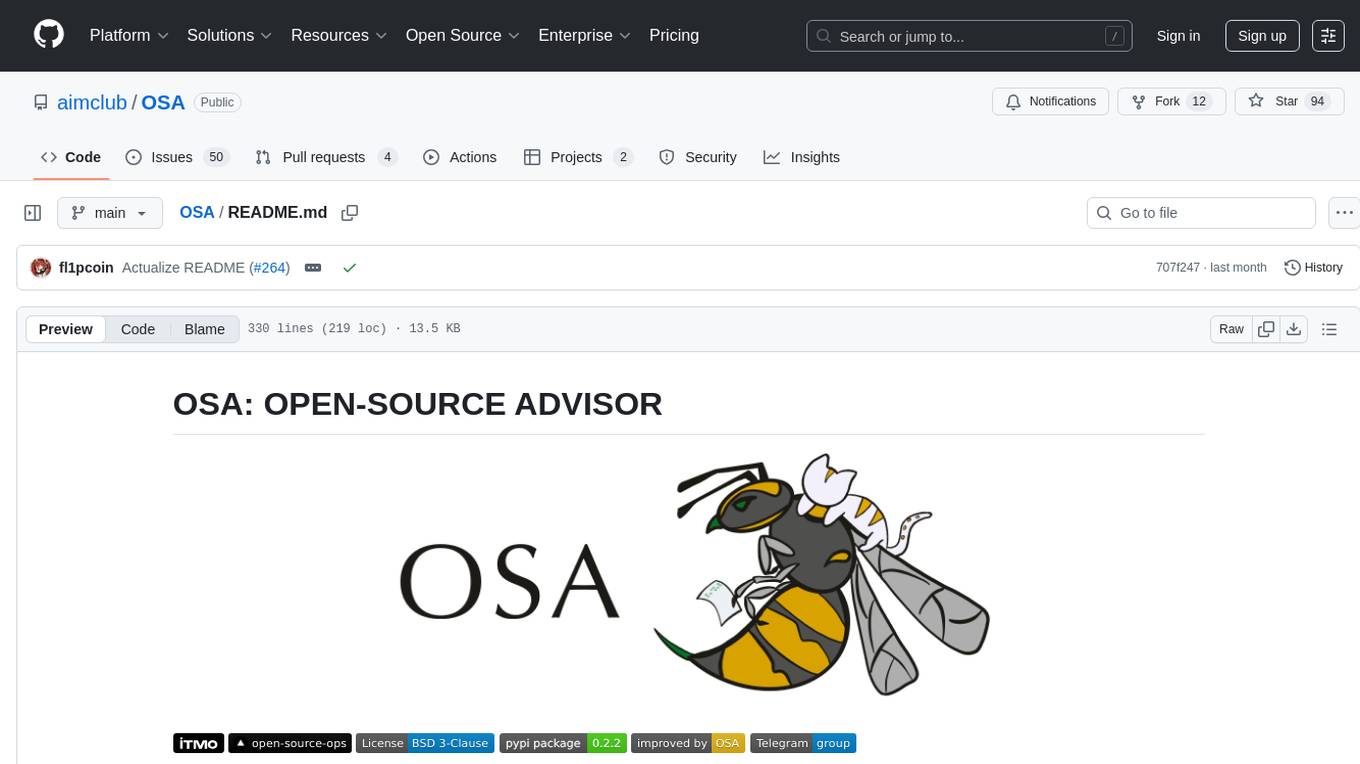
OSA
OSA (Open-Source-Advisor) is a tool designed to improve the quality of scientific open source projects by automating the generation of README files, documentation, CI/CD scripts, and providing advice and recommendations for repositories. It supports various LLMs accessible via API, local servers, or osa_bot hosted on ITMO servers. OSA is currently under development with features like README file generation, documentation generation, automatic implementation of changes, LLM integration, and GitHub Action Workflow generation. It requires Python 3.10 or higher and tokens for GitHub/GitLab/Gitverse and LLM API key. Users can install OSA using PyPi or build from source, and run it using CLI commands or Docker containers.

langchain_dart
LangChain.dart is a Dart port of the popular LangChain Python framework created by Harrison Chase. LangChain provides a set of ready-to-use components for working with language models and a standard interface for chaining them together to formulate more advanced use cases (e.g. chatbots, Q&A with RAG, agents, summarization, extraction, etc.). The components can be grouped into a few core modules: * **Model I/O:** LangChain offers a unified API for interacting with various LLM providers (e.g. OpenAI, Google, Mistral, Ollama, etc.), allowing developers to switch between them with ease. Additionally, it provides tools for managing model inputs (prompt templates and example selectors) and parsing the resulting model outputs (output parsers). * **Retrieval:** assists in loading user data (via document loaders), transforming it (with text splitters), extracting its meaning (using embedding models), storing (in vector stores) and retrieving it (through retrievers) so that it can be used to ground the model's responses (i.e. Retrieval-Augmented Generation or RAG). * **Agents:** "bots" that leverage LLMs to make informed decisions about which available tools (such as web search, calculators, database lookup, etc.) to use to accomplish the designated task. The different components can be composed together using the LangChain Expression Language (LCEL).
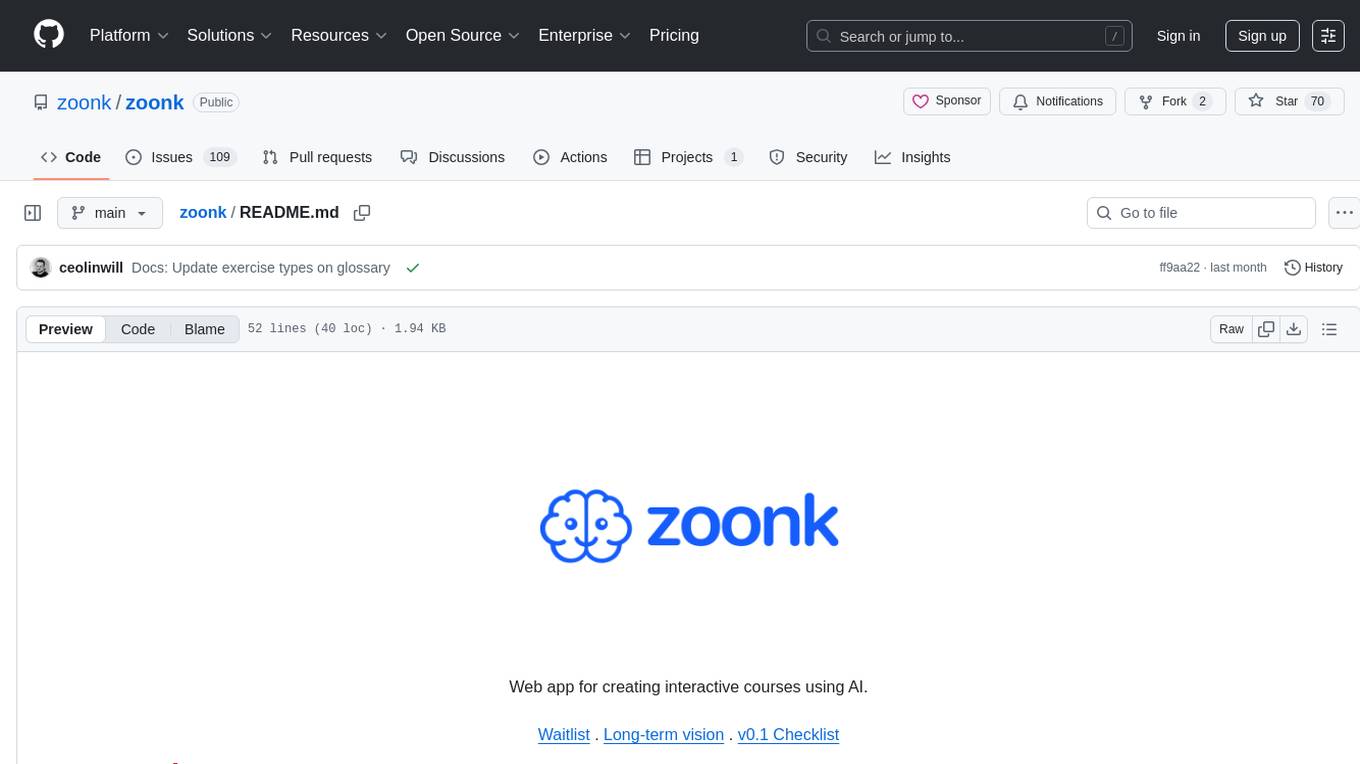
zoonk
Zoonk is a web app designed for creating interactive courses using AI. Currently in early development stage, it is not yet ready for use but aims to be available for testing and contributions in the future. The project focuses on leveraging AI technology to enhance the learning experience by providing interactive course creation tools. Zoonk also conducts model evaluations on different prompts to improve its AI capabilities. The project has garnered support from various individuals who believe in its vision and potential.
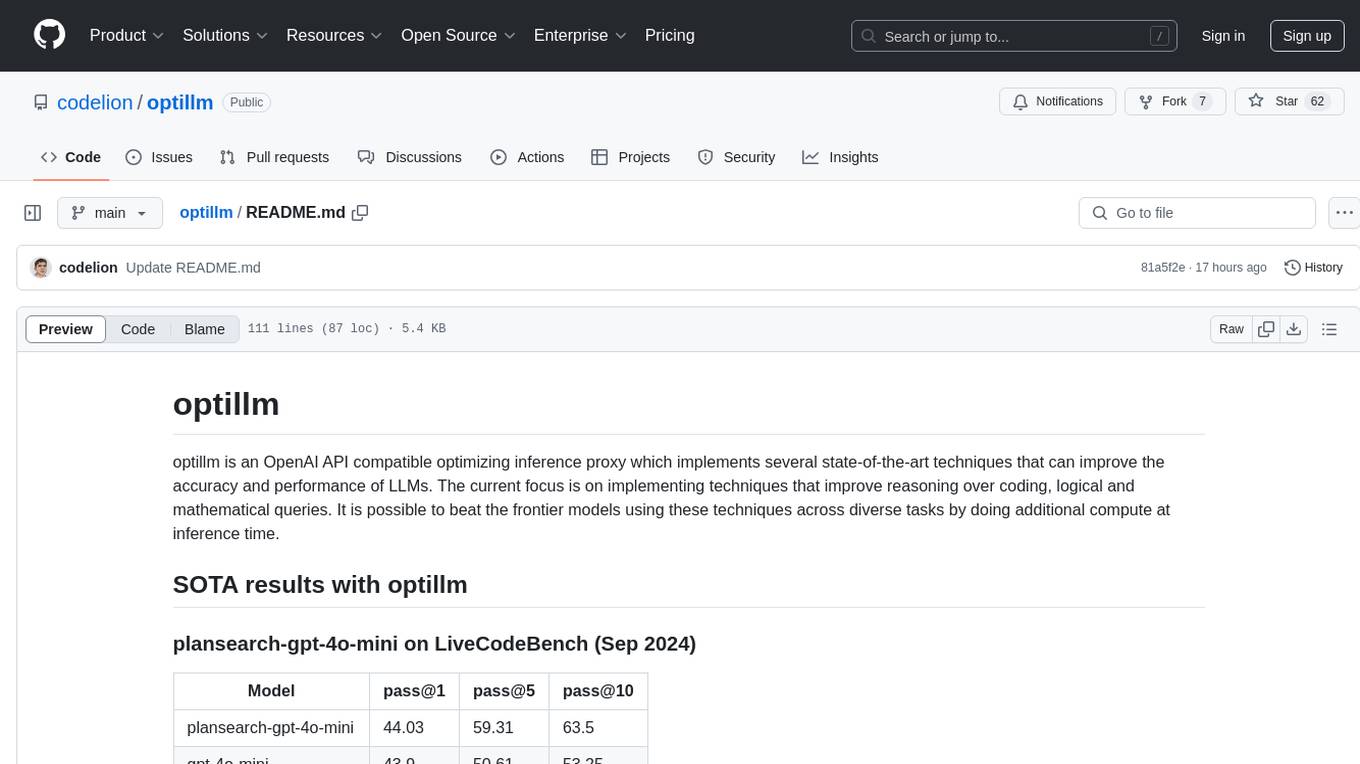
optillm
optillm is an OpenAI API compatible optimizing inference proxy implementing state-of-the-art techniques to enhance accuracy and performance of LLMs, focusing on reasoning over coding, logical, and mathematical queries. By leveraging additional compute at inference time, it surpasses frontier models across diverse tasks.
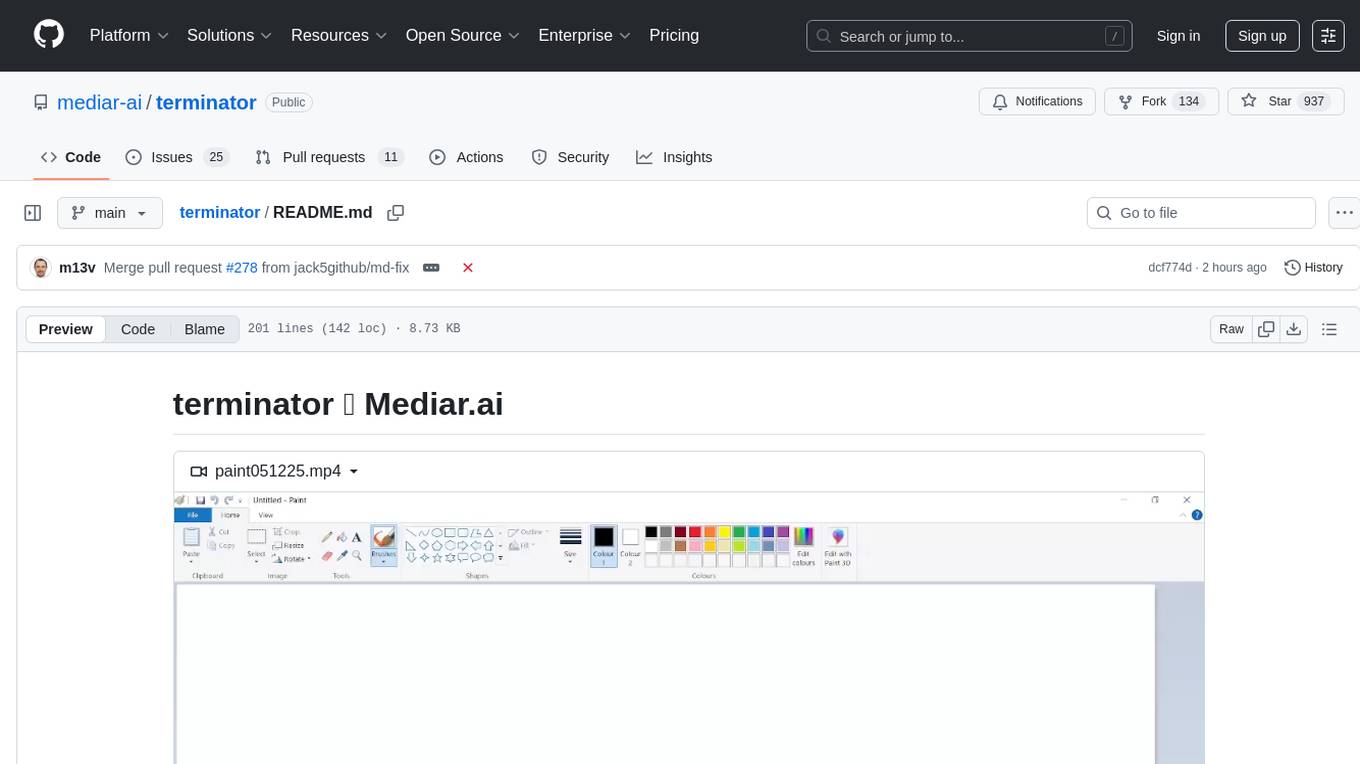
terminator
Terminator is an AI-powered desktop automation tool that is open source, MIT-licensed, and cross-platform. It works across all apps and browsers, inspired by GitHub Actions & Playwright. It is 100x faster than generic AI agents, with over 95% success rate and no vendor lock-in. Users can create automations that work across any desktop app or browser, achieve high success rates without costly consultant armies, and pre-train workflows as deterministic code.
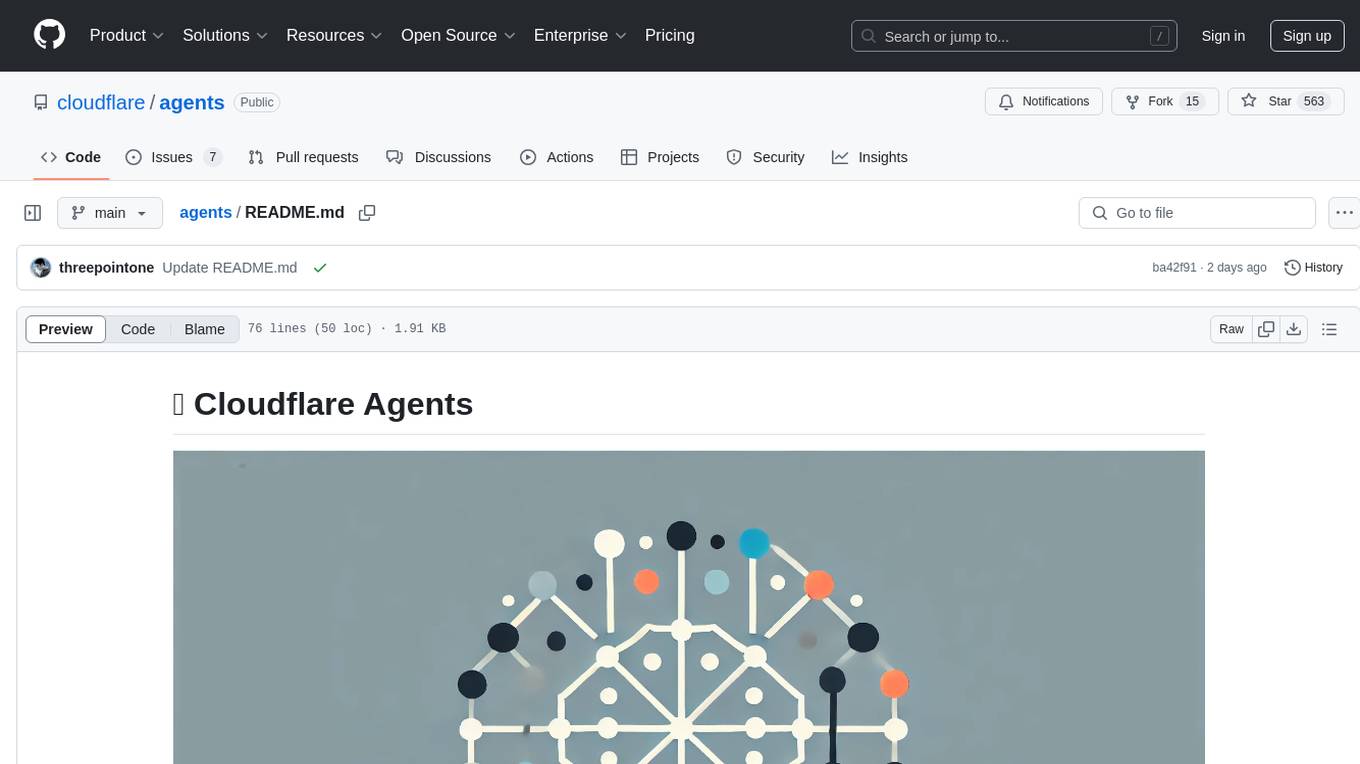
agents
Cloudflare Agents is a framework for building intelligent, stateful agents that persist, think, and evolve at the edge of the network. It allows for maintaining persistent state and memory, real-time communication, processing and learning from interactions, autonomous operation at global scale, and hibernating when idle. The project is actively evolving with focus on core agent framework, WebSocket communication, HTTP endpoints, React integration, and basic AI chat capabilities. Future developments include advanced memory systems, WebRTC for audio/video, email integration, evaluation framework, enhanced observability, and self-hosting guide.
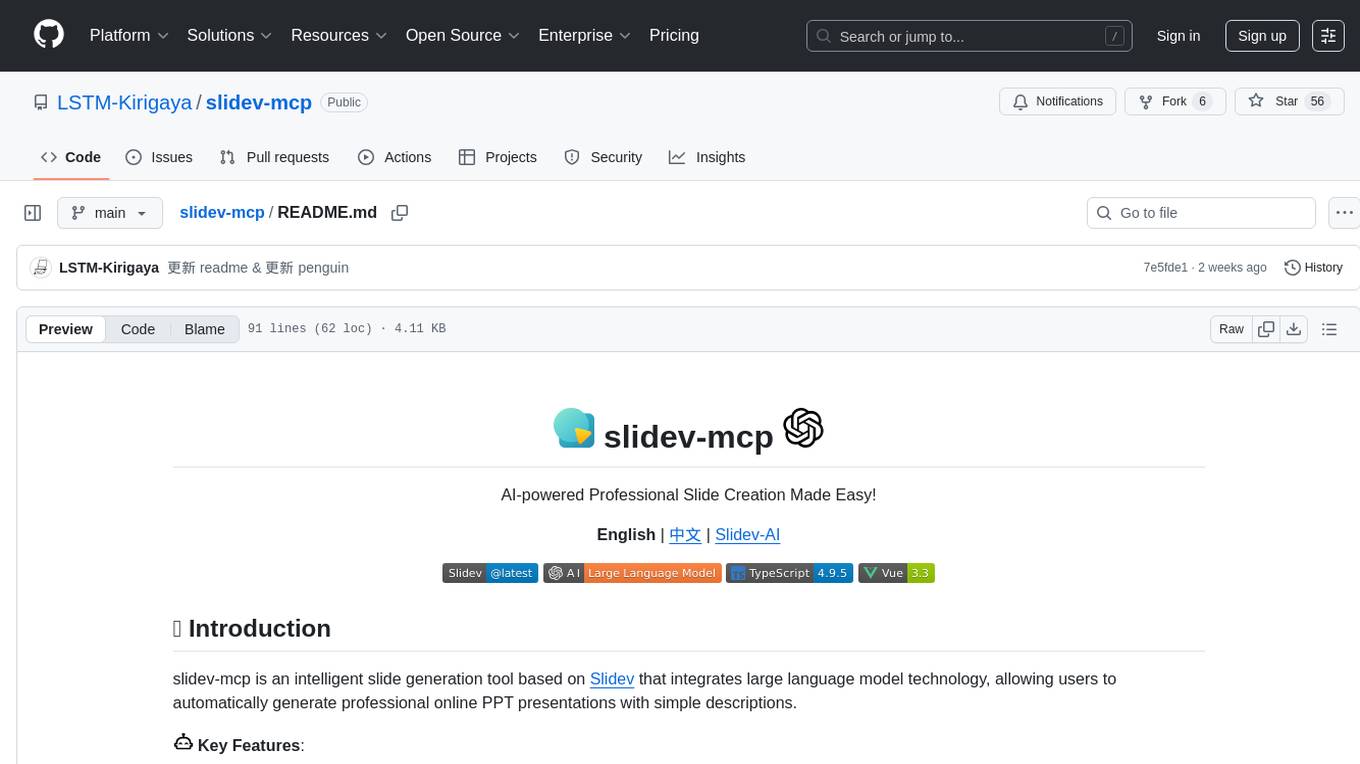
slidev-mcp
slidev-mcp is an intelligent slide generation tool based on Slidev that integrates large language model technology, allowing users to automatically generate professional online PPT presentations with simple descriptions. It dramatically lowers the barrier to using Slidev, provides natural language interactive slide creation, and offers automated generation of professional presentations. The tool also includes various features for environment and project management, slide content management, and utility tools to enhance the slide creation process.
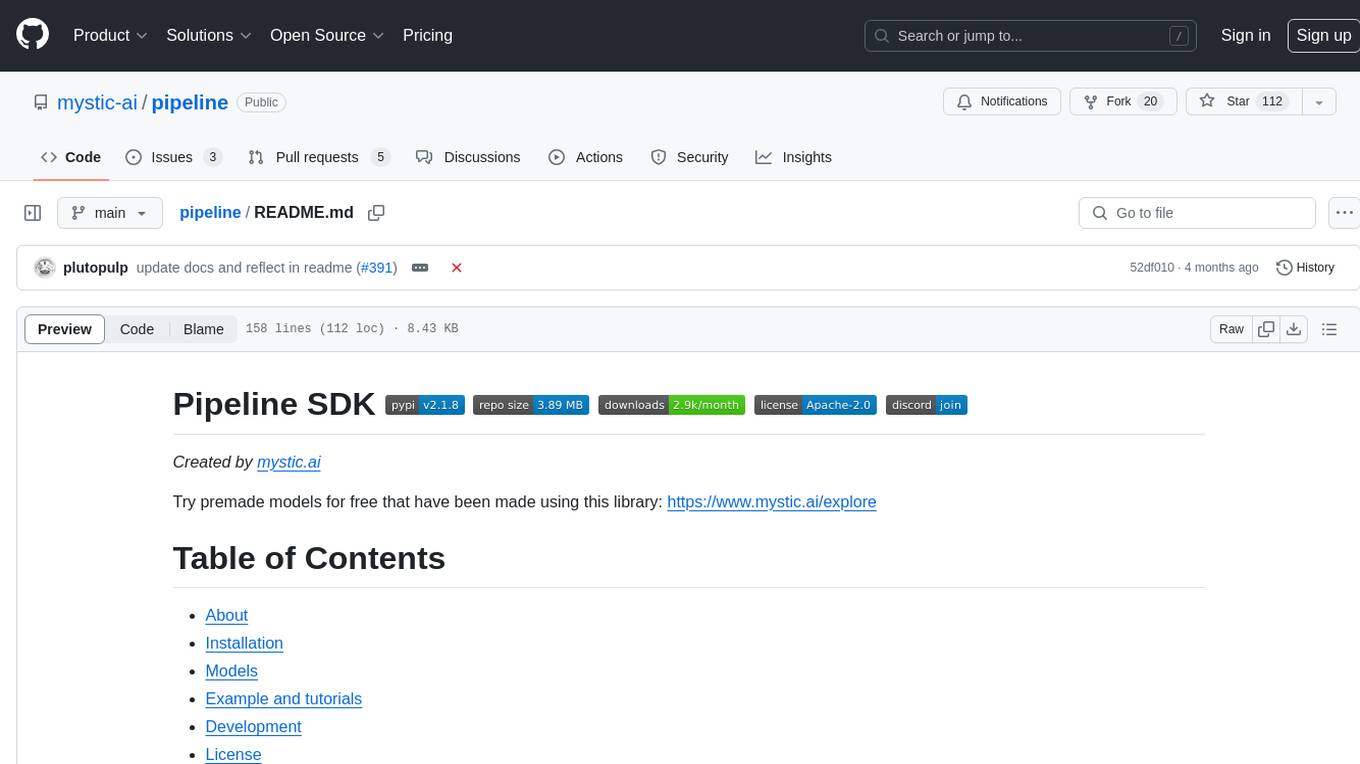
pipeline
Pipeline is a Python library designed for constructing computational flows for AI/ML models. It supports both development and production environments, offering capabilities for inference, training, and finetuning. The library serves as an interface to Mystic, enabling the execution of pipelines at scale and on enterprise GPUs. Users can also utilize this SDK with Pipeline Core on a private hosted cluster. The syntax for defining AI/ML pipelines is reminiscent of sessions in Tensorflow v1 and Flows in Prefect.
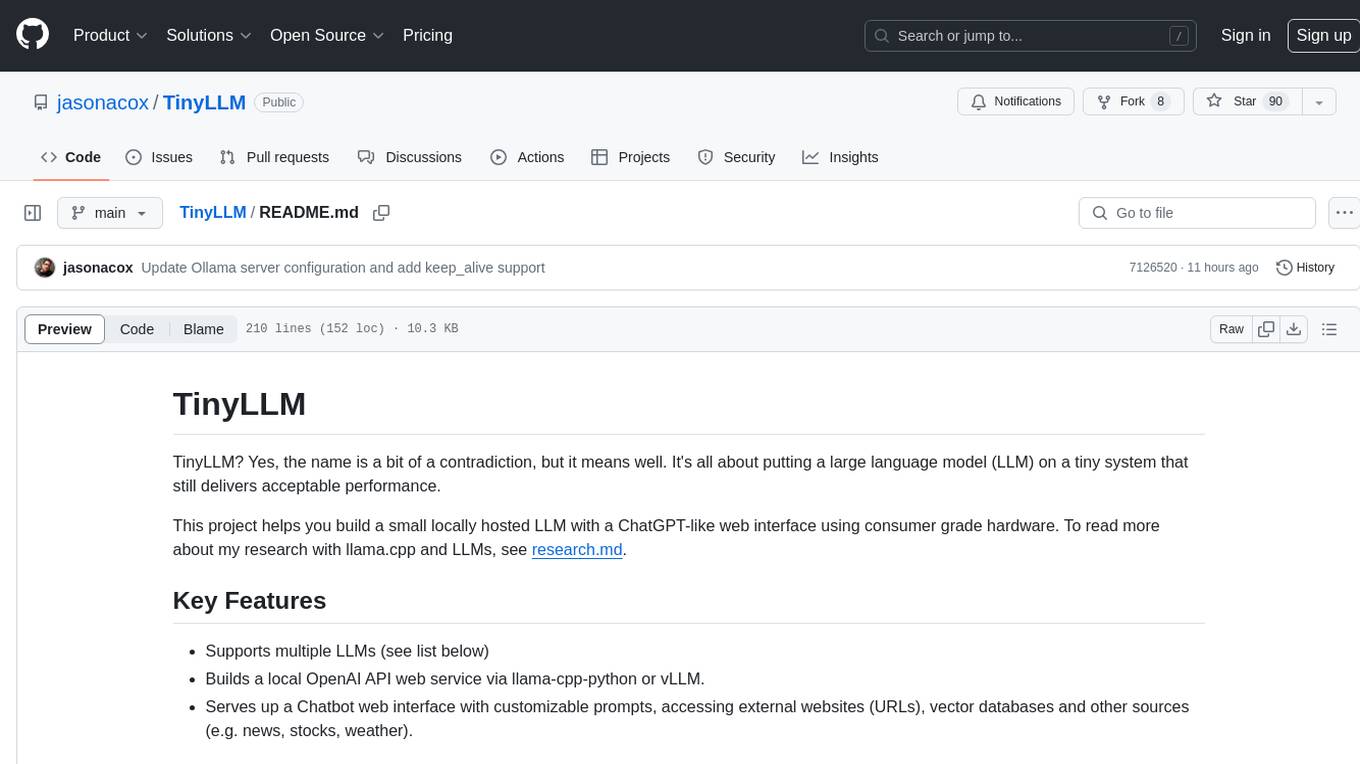
TinyLLM
TinyLLM is a project that helps build a small locally hosted language model with a web interface using consumer-grade hardware. It supports multiple language models, builds a local OpenAI API web service, and serves a Chatbot web interface with customizable prompts. The project requires specific hardware and software configurations for optimal performance. Users can run a local language model using inference servers like vLLM, llama-cpp-python, and Ollama. The Chatbot feature allows users to interact with the language model through a web-based interface, supporting features like summarizing websites, displaying news headlines, stock prices, weather conditions, and using vector databases for queries.
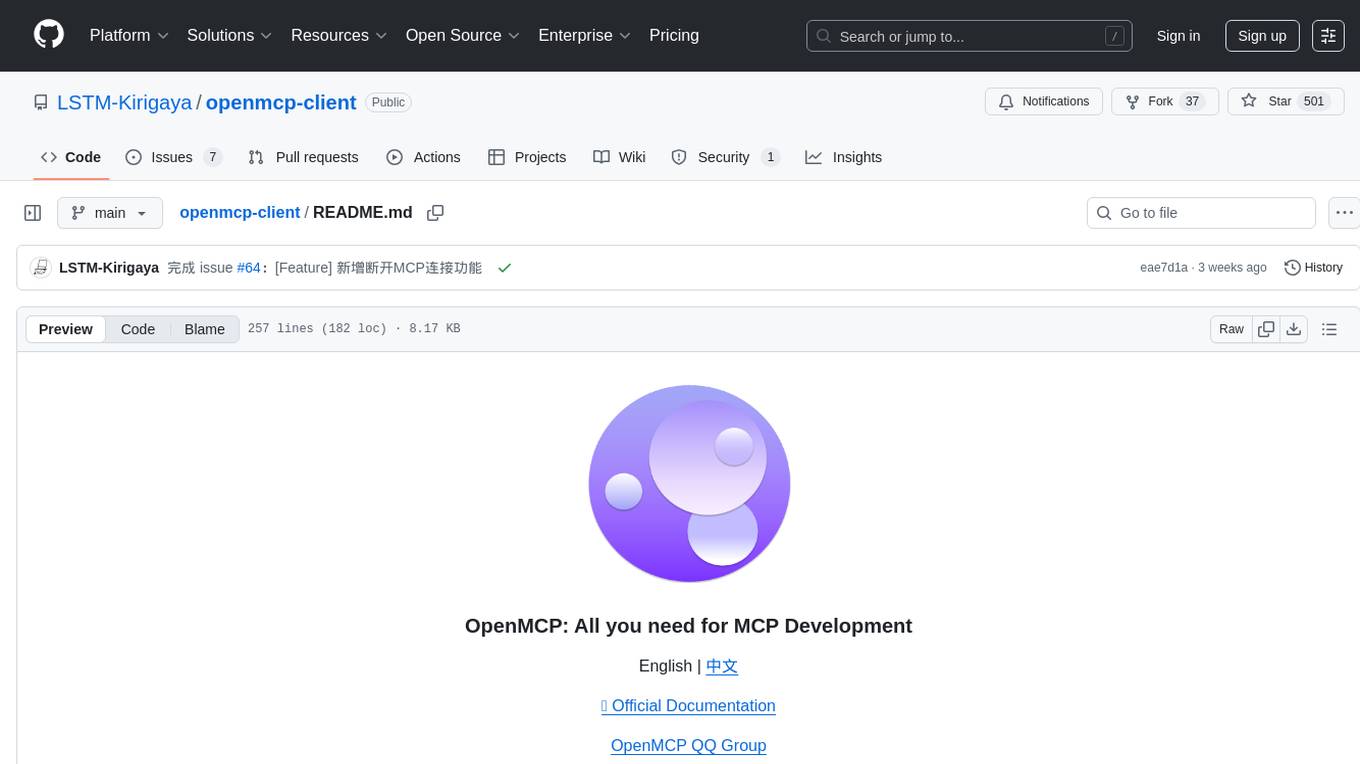
openmcp-client
OpenMCP is an integrated plugin for MCP server debugging in vscode/trae/cursor, combining development and testing functionalities. It includes tools for testing MCP resources, managing large model interactions, project-level management, and supports multiple large models. The openmcp-sdk allows for deploying MCP as an agent app with easy configuration and execution of tasks. The project follows a modular design allowing implementation in different modes on various platforms.
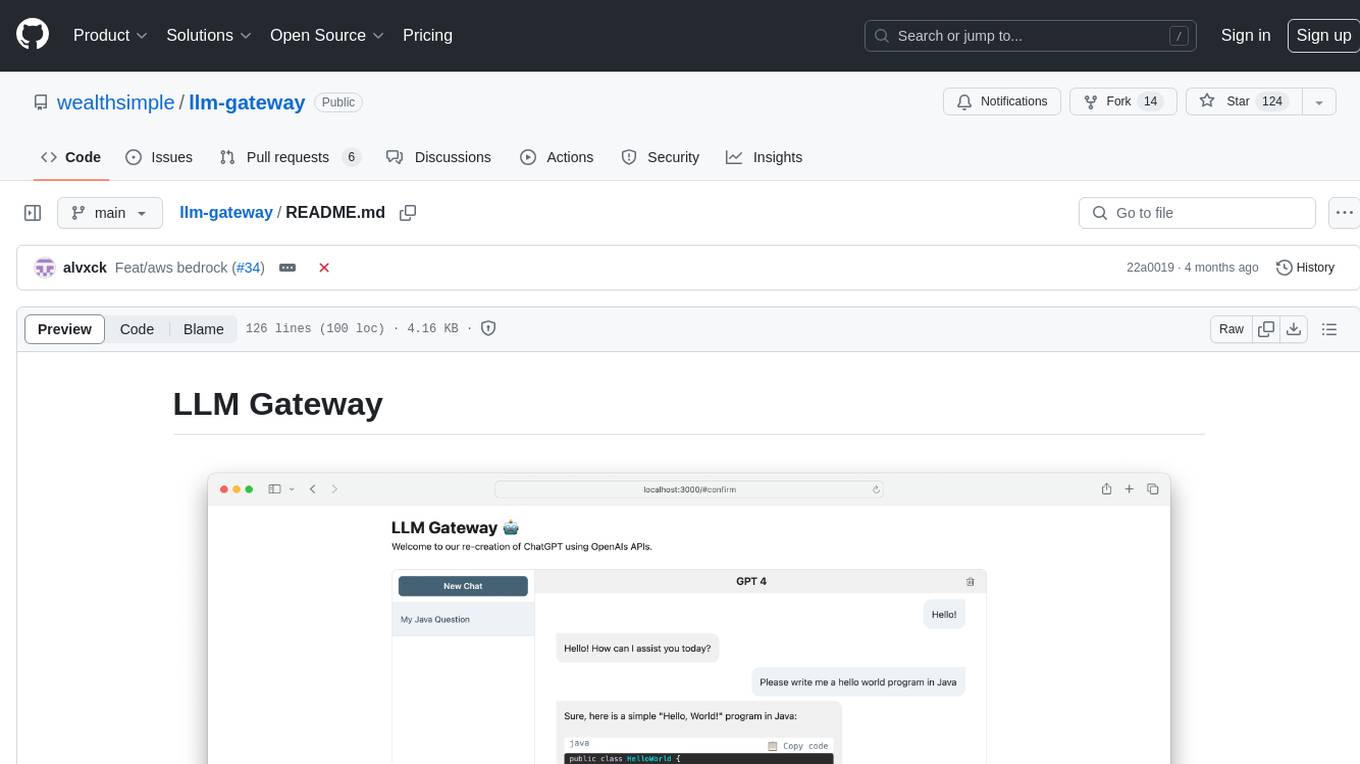
llm-gateway
llm-gateway is a gateway tool designed for interacting with third-party LLM providers such as OpenAI, Cohere, etc. It tracks data exchanged with these providers in a postgres database, applies PII scrubbing heuristics, and ensures safe communication with OpenAI's services. The tool supports various models from different providers and offers API and Python usage examples. Developers can set up the tool using Poetry, Pyenv, npm, and yarn for dependency management. The project also includes Docker setup for backend and frontend development.
For similar tasks

airswap-protocols
AirSwap Protocols is a repository containing smart contracts for developers and traders on the AirSwap peer-to-peer trading network. It includes various packages for functionalities like server registry, atomic token swap, staking, rewards pool, batch token and order calls, libraries, and utils. The repository follows a branching and release process for contracts and tools, with steps for regular development process and individual package features or patches. Users can deploy and verify contracts using specific commands with network flags.
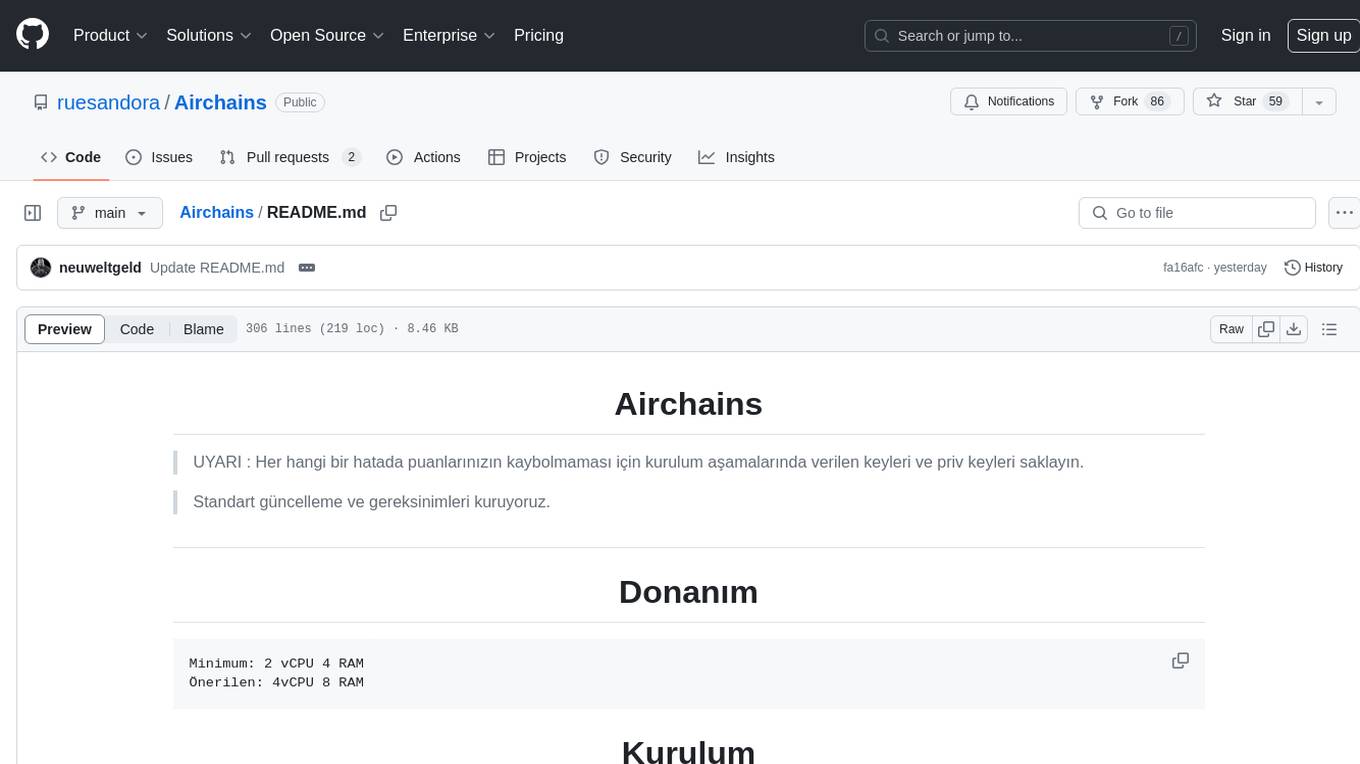
Airchains
Airchains is a tool for setting up a local EVM network for testing and development purposes. It provides step-by-step instructions for installing and configuring the necessary components. The tool helps users create their own local EVM network, manage keys, deploy contracts, and interact with the network using RPC. It also guides users on setting up a station for tracking and managing transactions. Airchains is designed to facilitate testing and development activities related to blockchain applications built on the EVM platform.
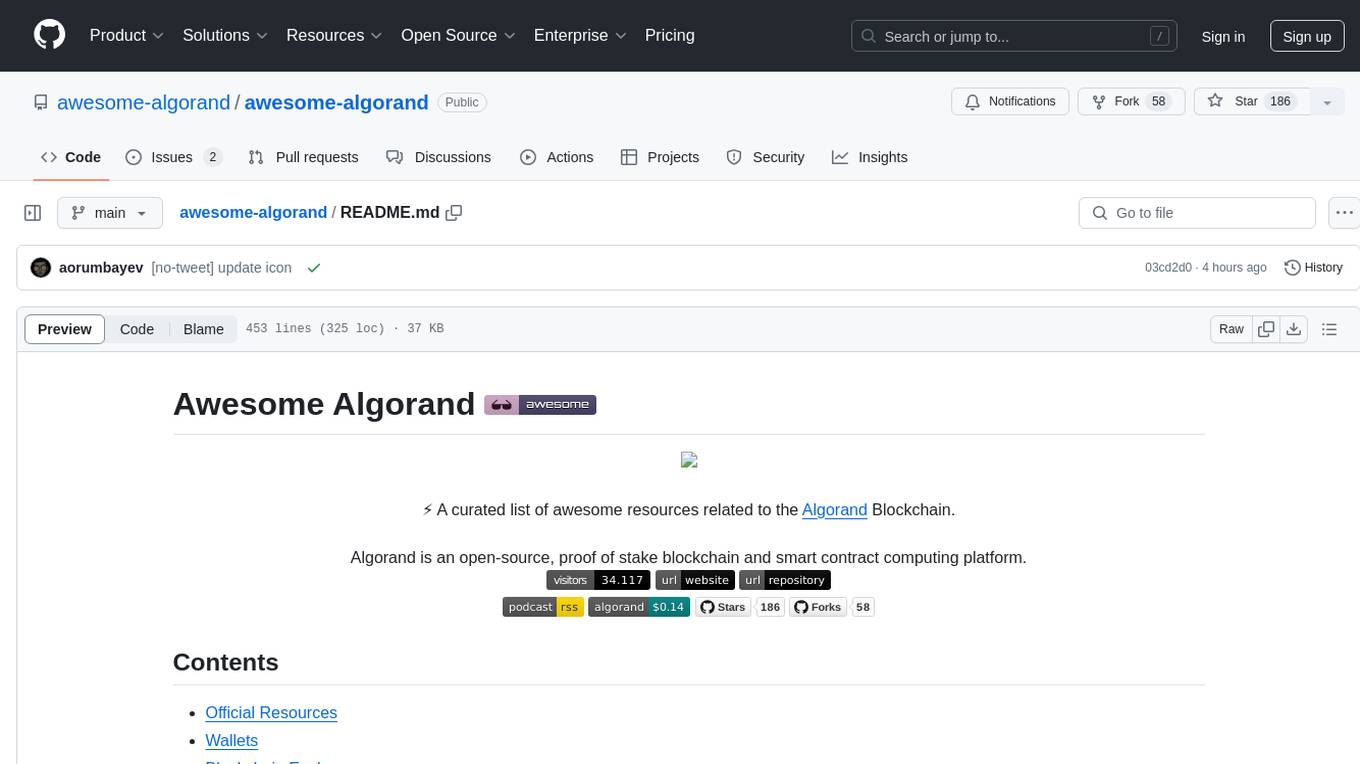
awesome-algorand
Awesome Algorand is a curated list of resources related to the Algorand Blockchain, including official resources, wallets, blockchain explorers, portfolio trackers, learning resources, development tools, DeFi platforms, nodes & consensus participation, subscription management, security auditing services, blockchain bridges, oracles, name services, community resources, Algorand Request for Comments, metrics and analytics services, decentralized voting tools, and NFT marketplaces. The repository provides a comprehensive collection of tools, tutorials, protocols, and platforms for developers, users, and enthusiasts interested in the Algorand ecosystem.
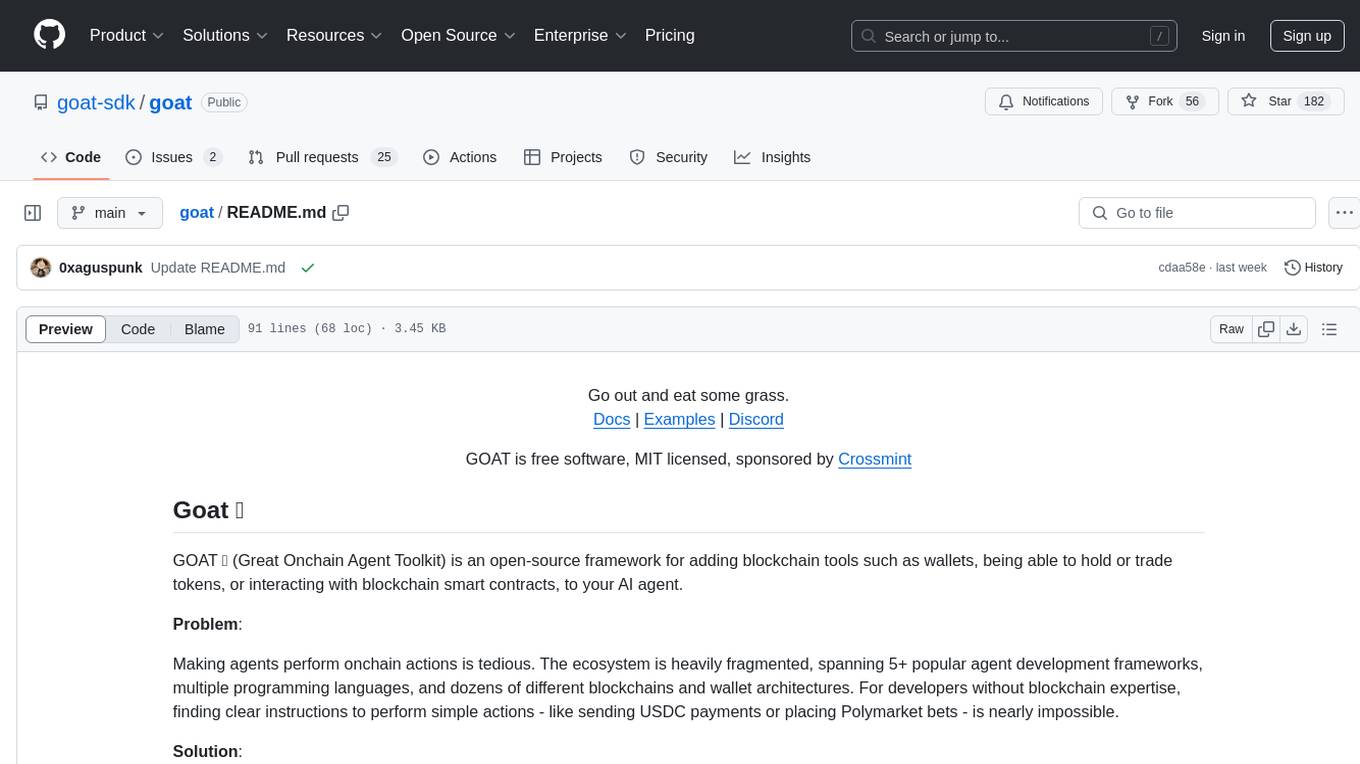
goat
GOAT (Great Onchain Agent Toolkit) is an open-source framework designed to simplify the process of making AI agents perform onchain actions by providing a provider-agnostic solution that abstracts away the complexities of interacting with blockchain tools such as wallets, token trading, and smart contracts. It offers a catalog of ready-made blockchain actions for agent developers and allows dApp/smart contract developers to develop plugins for easy access by agents. With compatibility across popular agent frameworks, support for multiple blockchains and wallet providers, and customizable onchain functionalities, GOAT aims to streamline the integration of blockchain capabilities into AI agents.
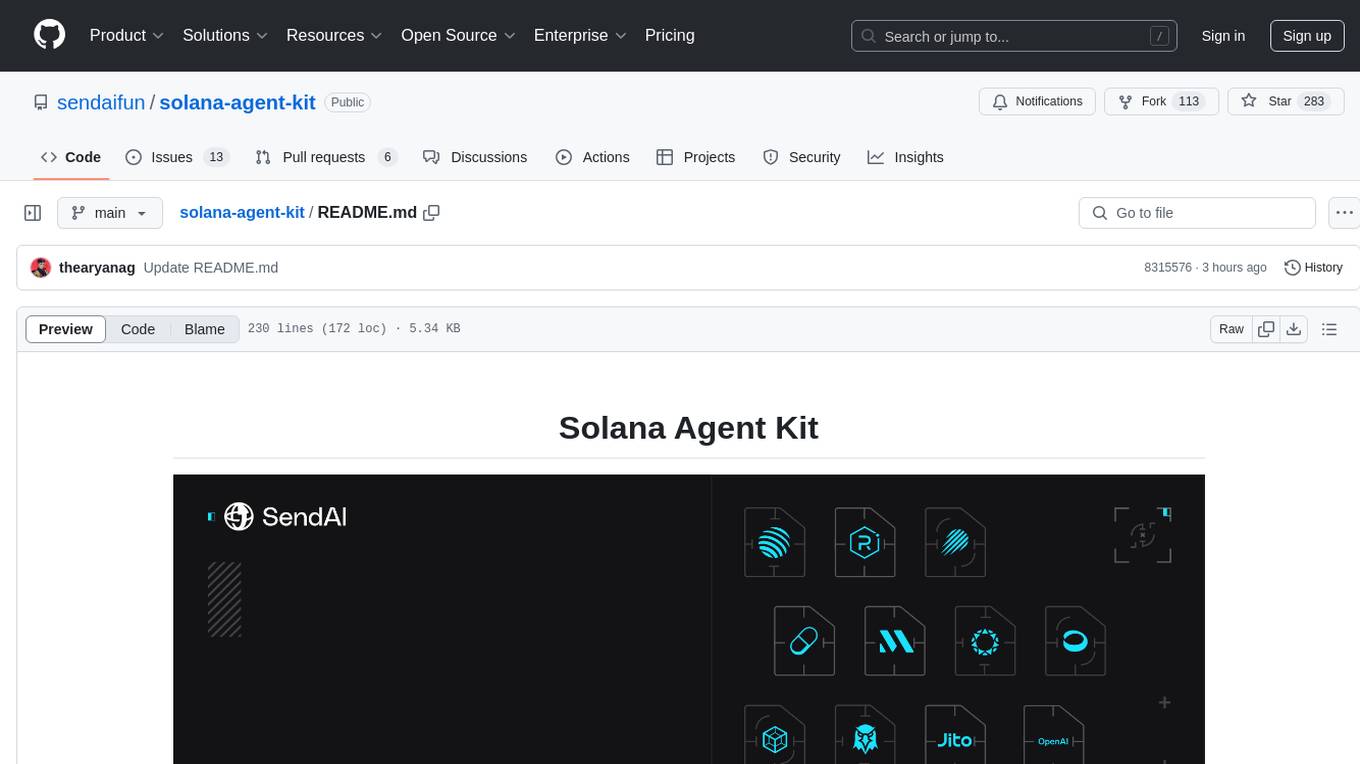
solana-agent-kit
Solana Agent Kit is an open-source toolkit designed for connecting AI agents to Solana protocols. It enables agents, regardless of the model used, to autonomously perform various Solana actions such as trading tokens, launching new tokens, lending assets, sending compressed airdrops, executing blinks, and more. The toolkit integrates core blockchain features like token operations, NFT management via Metaplex, DeFi integration, Solana blinks, AI integration features with LangChain, autonomous modes, and AI tools. It provides ready-to-use tools for blockchain operations, supports autonomous agent actions, and offers features like memory management, real-time feedback, and error handling. Solana Agent Kit facilitates tasks such as deploying tokens, creating NFT collections, swapping tokens, lending tokens, staking SOL, and sending SPL token airdrops via ZK compression. It also includes functionalities for fetching price data from Pyth and relies on key Solana and Metaplex libraries for its operations.
For similar jobs

airswap-protocols
AirSwap Protocols is a repository containing smart contracts for developers and traders on the AirSwap peer-to-peer trading network. It includes various packages for functionalities like server registry, atomic token swap, staking, rewards pool, batch token and order calls, libraries, and utils. The repository follows a branching and release process for contracts and tools, with steps for regular development process and individual package features or patches. Users can deploy and verify contracts using specific commands with network flags.
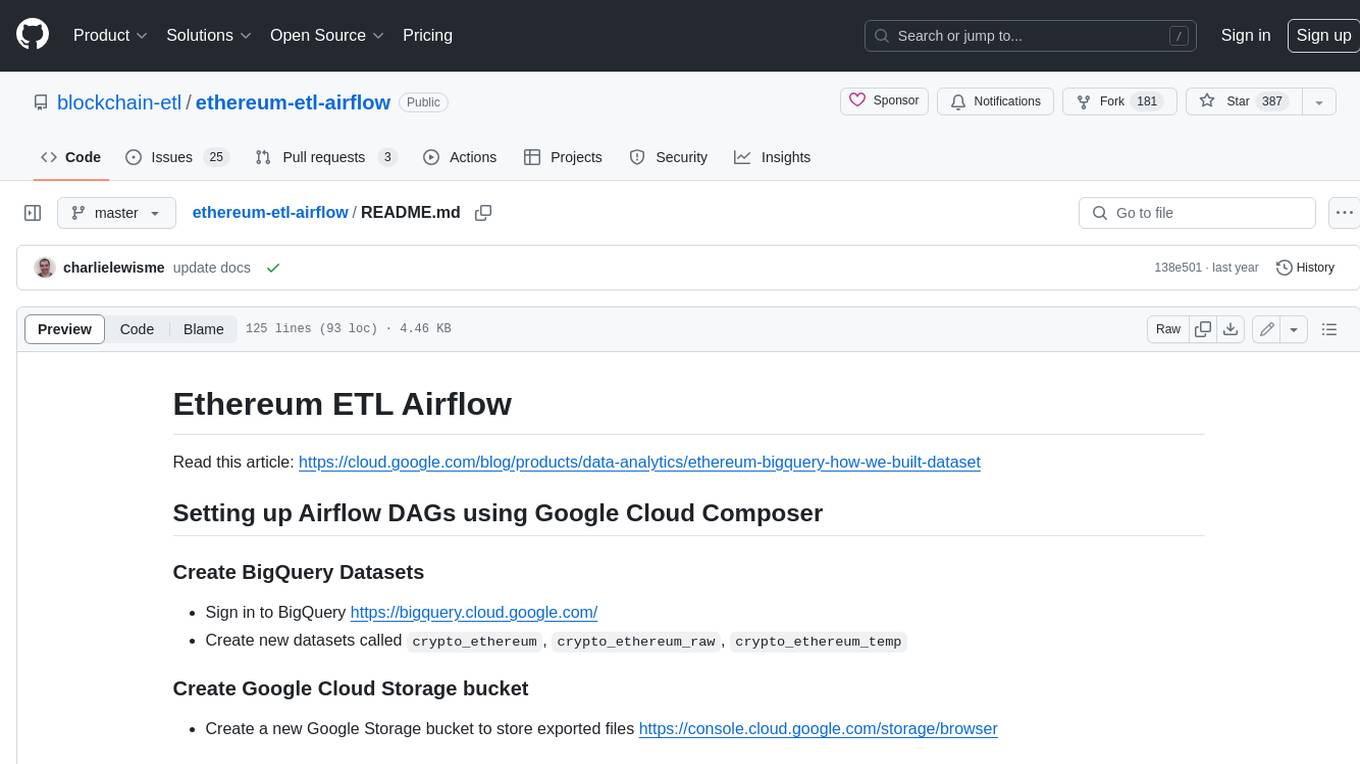
ethereum-etl-airflow
This repository contains Airflow DAGs for extracting, transforming, and loading (ETL) data from the Ethereum blockchain into BigQuery. The DAGs use the Google Cloud Platform (GCP) services, including BigQuery, Cloud Storage, and Cloud Composer, to automate the ETL process. The repository also includes scripts for setting up the GCP environment and running the DAGs locally.
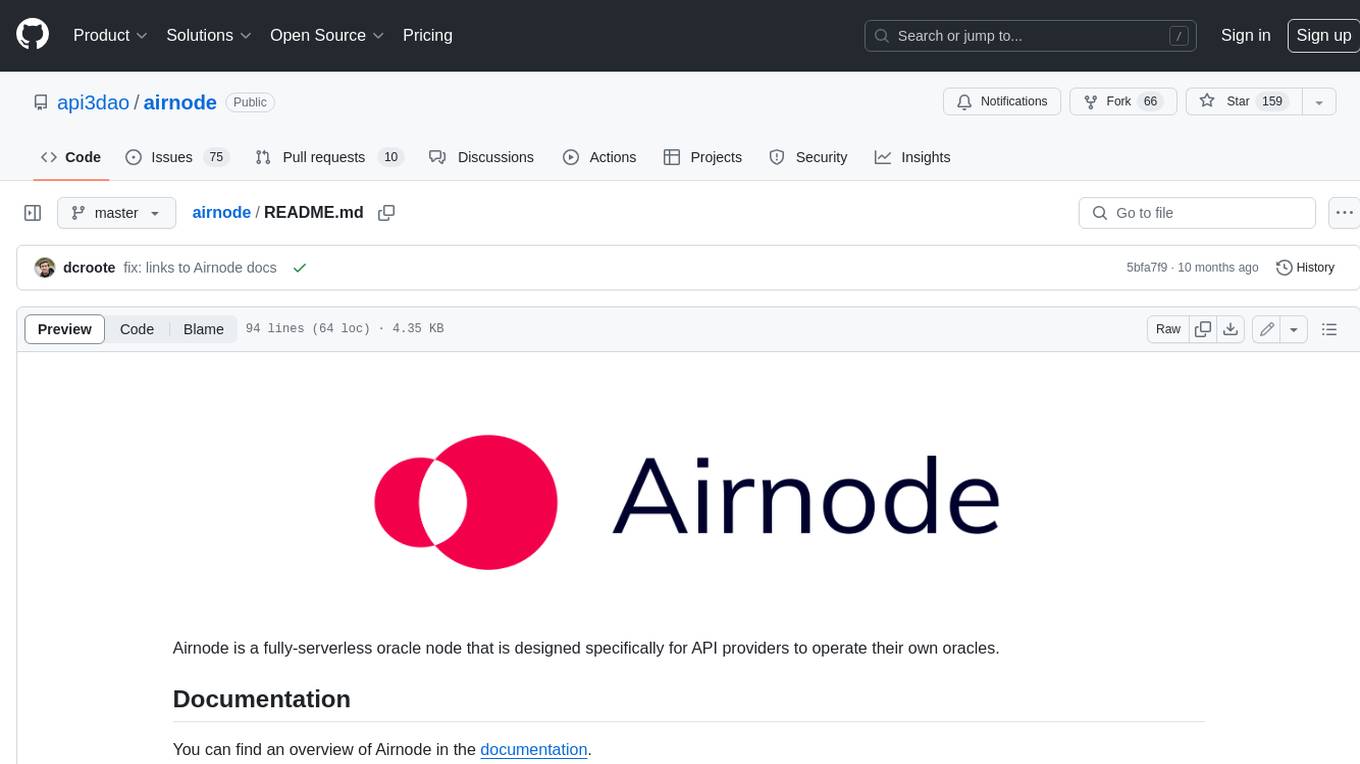
airnode
Airnode is a fully-serverless oracle node that is designed specifically for API providers to operate their own oracles.
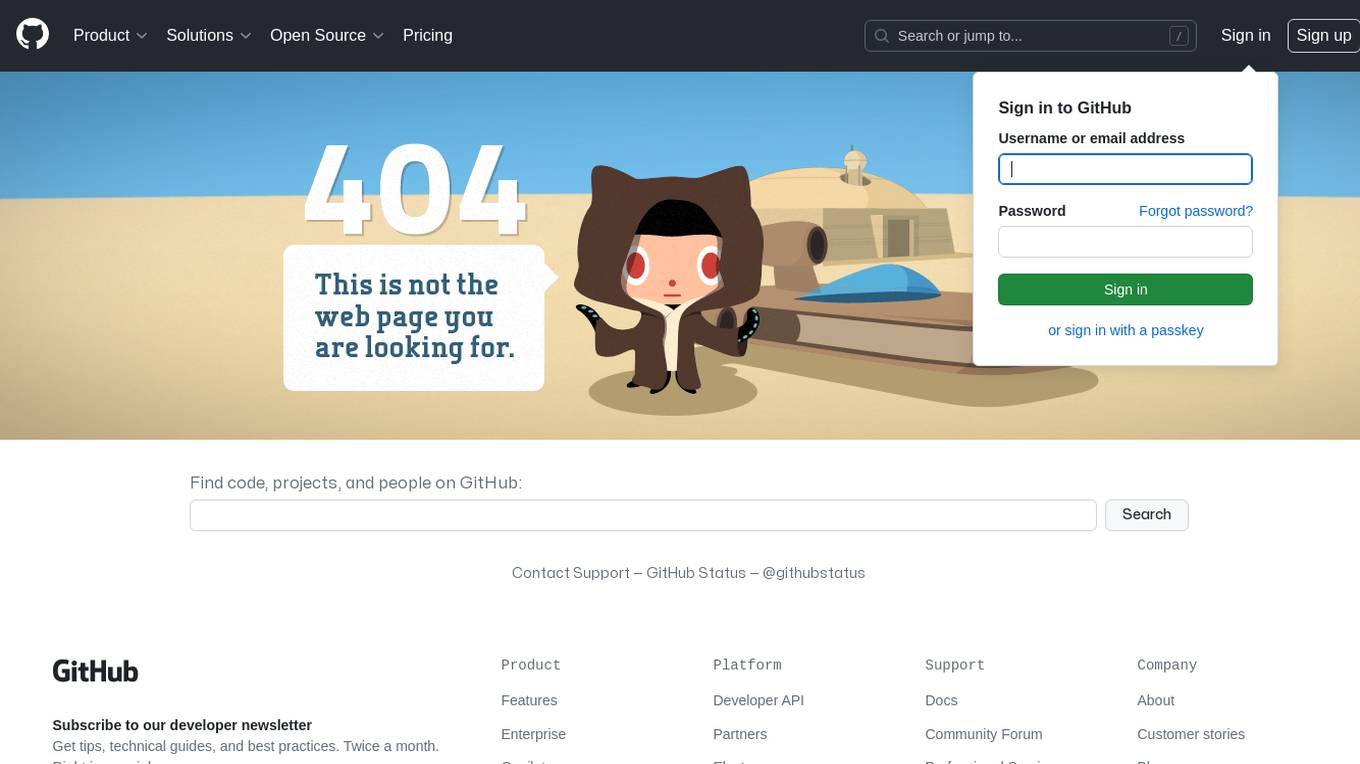
CHATPGT-MEV-BOT
The 𝓜𝓔𝓥-𝓑𝓞𝓣 is a revolutionary tool that empowers users to maximize their ETH earnings through advanced slippage techniques within the Ethereum ecosystem. Its user-centric design, optimized earning mechanism, and comprehensive security measures make it an indispensable tool for traders seeking to enhance their crypto trading strategies. With its current free access, there's no better time to explore the 𝓜𝓔𝓥-𝓑𝓞𝓣's capabilities and witness the transformative impact it can have on your crypto trading journey.
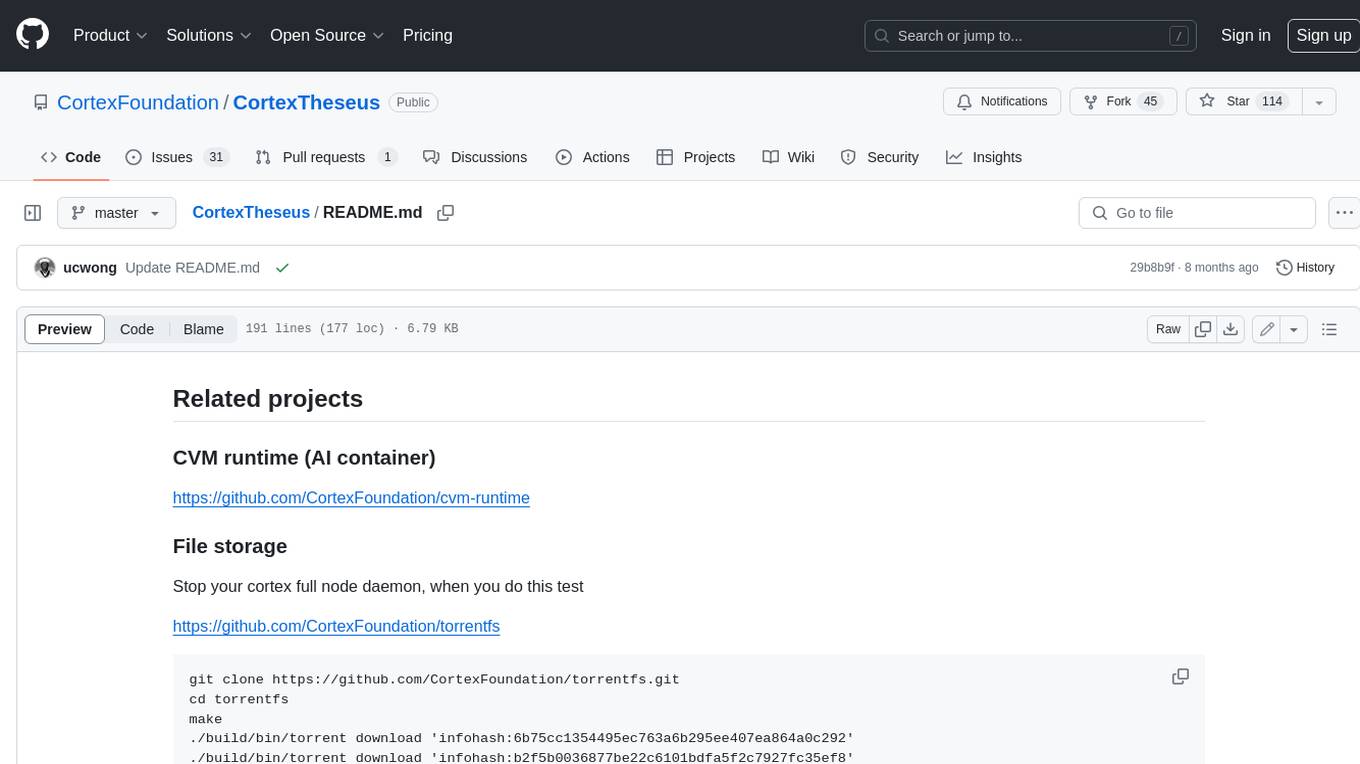
CortexTheseus
CortexTheseus is a full node implementation of the Cortex blockchain, written in C++. It provides a complete set of features for interacting with the Cortex network, including the ability to create and manage accounts, send and receive transactions, and participate in consensus. CortexTheseus is designed to be scalable, secure, and easy to use, making it an ideal choice for developers building applications on the Cortex blockchain.
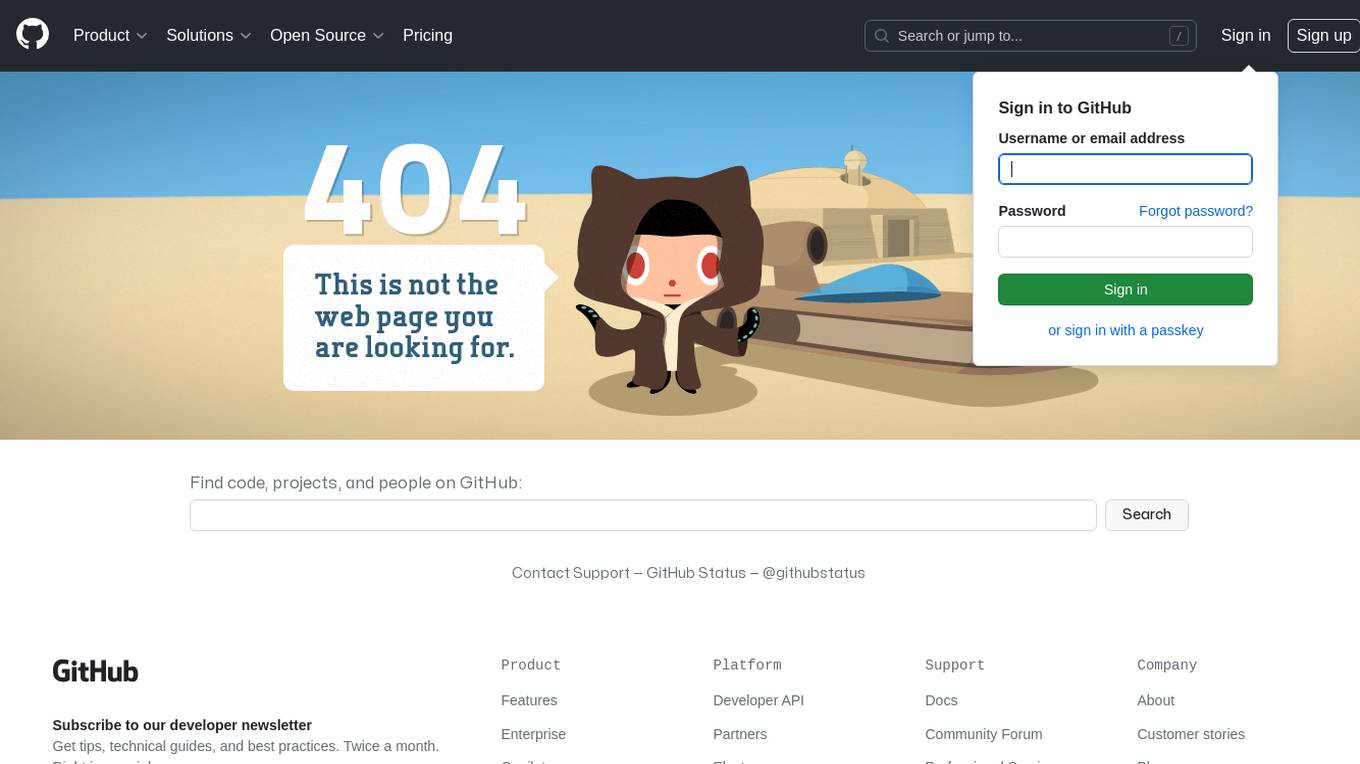
CHATPGT-MEV-BOT-ETH
This tool is a bot that monitors the performance of MEV transactions on the Ethereum blockchain. It provides real-time data on MEV profitability, transaction volume, and network congestion. The bot can be used to identify profitable MEV opportunities and to track the performance of MEV strategies.
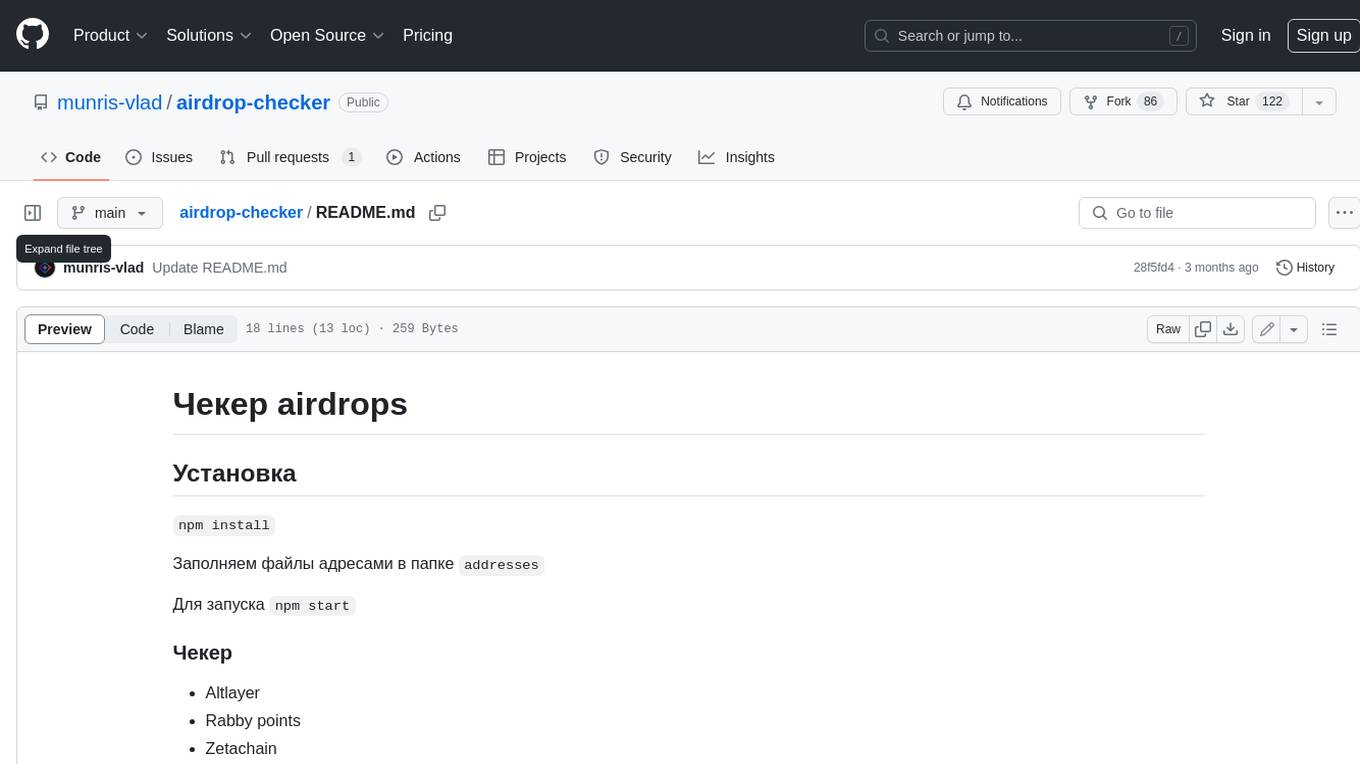
airdrop-checker
Airdrop-checker is a tool that helps you to check if you are eligible for any airdrops. It supports multiple airdrops, including Altlayer, Rabby points, Zetachain, Frame, Anoma, Dymension, and MEME. To use the tool, you need to install it using npm and then fill the addresses files in the addresses folder with your wallet addresses. Once you have done this, you can run the tool using npm start.
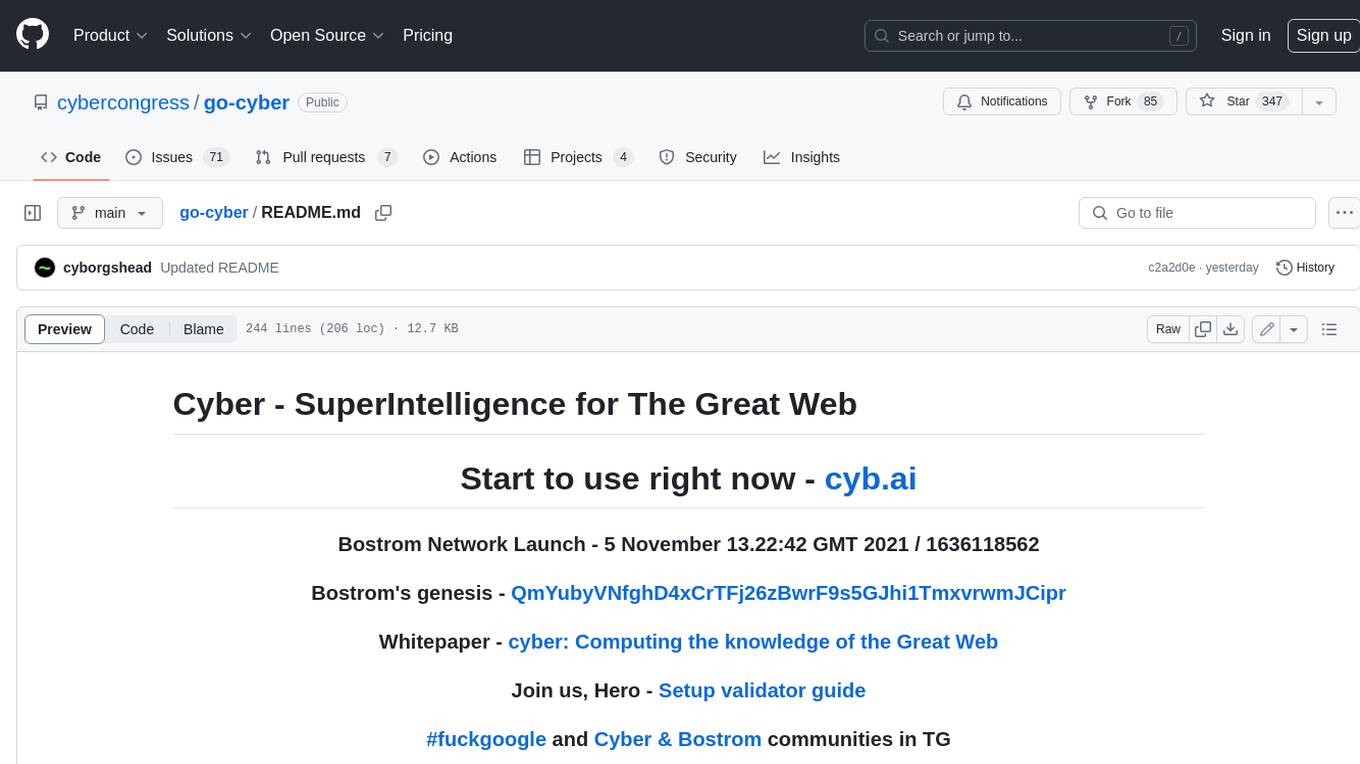
go-cyber
Cyber is a superintelligence protocol that aims to create a decentralized and censorship-resistant internet. It uses a novel consensus mechanism called CometBFT and a knowledge graph to store and process information. Cyber is designed to be scalable, secure, and efficient, and it has the potential to revolutionize the way we interact with the internet.



